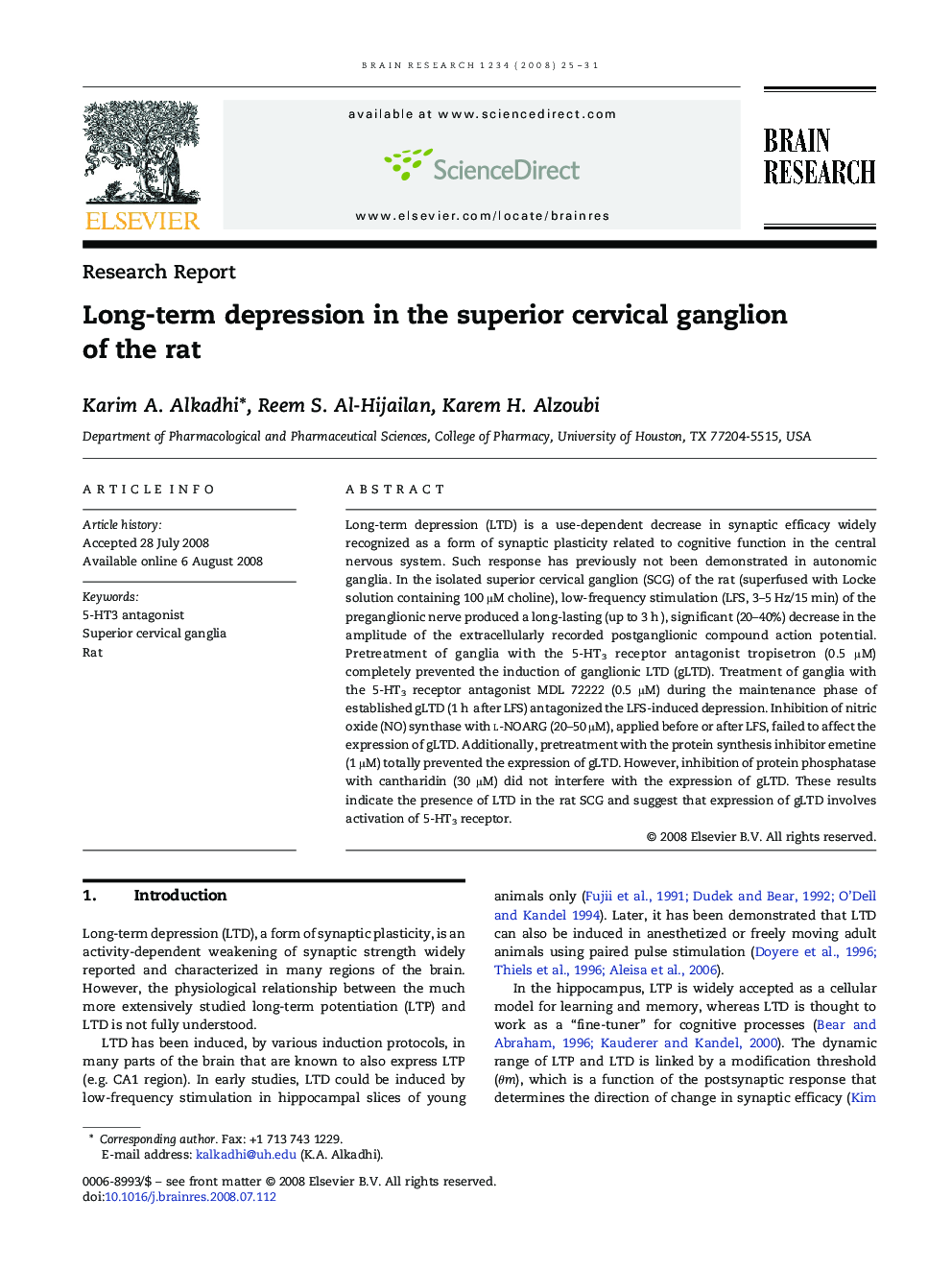| Article ID | Journal | Published Year | Pages | File Type |
|---|---|---|---|---|
| 4329085 | Brain Research | 2008 | 7 Pages |
Long-term depression (LTD) is a use-dependent decrease in synaptic efficacy widely recognized as a form of synaptic plasticity related to cognitive function in the central nervous system. Such response has previously not been demonstrated in autonomic ganglia. In the isolated superior cervical ganglion (SCG) of the rat (superfused with Locke solution containing 100 μM choline), low-frequency stimulation (LFS, 3–5 Hz/15 min) of the preganglionic nerve produced a long-lasting (up to 3 h ), significant (20–40%) decrease in the amplitude of the extracellularly recorded postganglionic compound action potential. Pretreatment of ganglia with the 5-HT3 receptor antagonist tropisetron (0.5 μM) completely prevented the induction of ganglionic LTD (gLTD). Treatment of ganglia with the 5-HT3 receptor antagonist MDL 72222 (0.5 μM) during the maintenance phase of established gLTD (1 h after LFS) antagonized the LFS-induced depression. Inhibition of nitric oxide (NO) synthase with l-NOARG (20–50 μM), applied before or after LFS, failed to affect the expression of gLTD. Additionally, pretreatment with the protein synthesis inhibitor emetine (1 μM) totally prevented the expression of gLTD. However, inhibition of protein phosphatase with cantharidin (30 μM) did not interfere with the expression of gLTD. These results indicate the presence of LTD in the rat SCG and suggest that expression of gLTD involves activation of 5-HT3 receptor.
